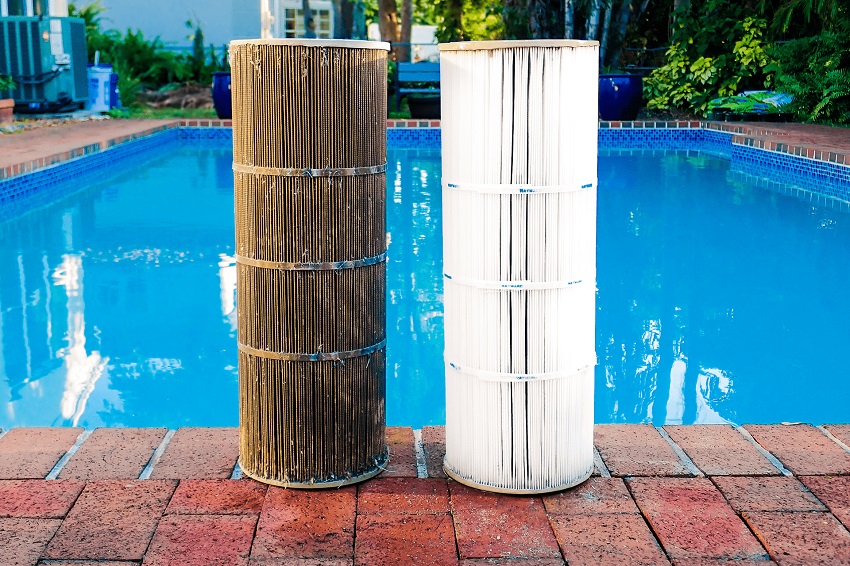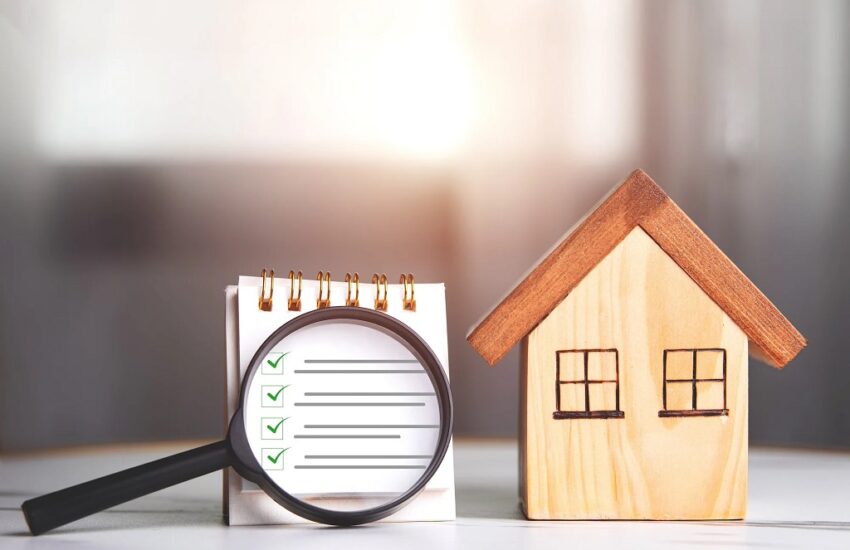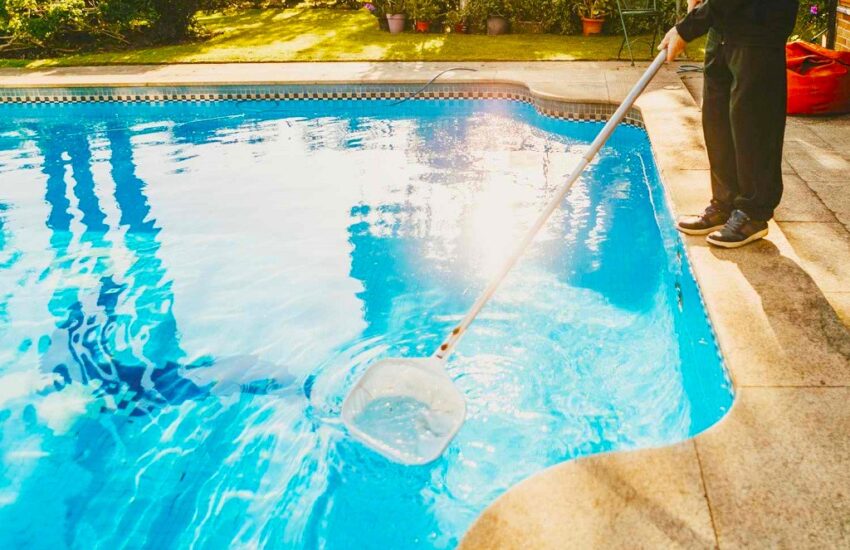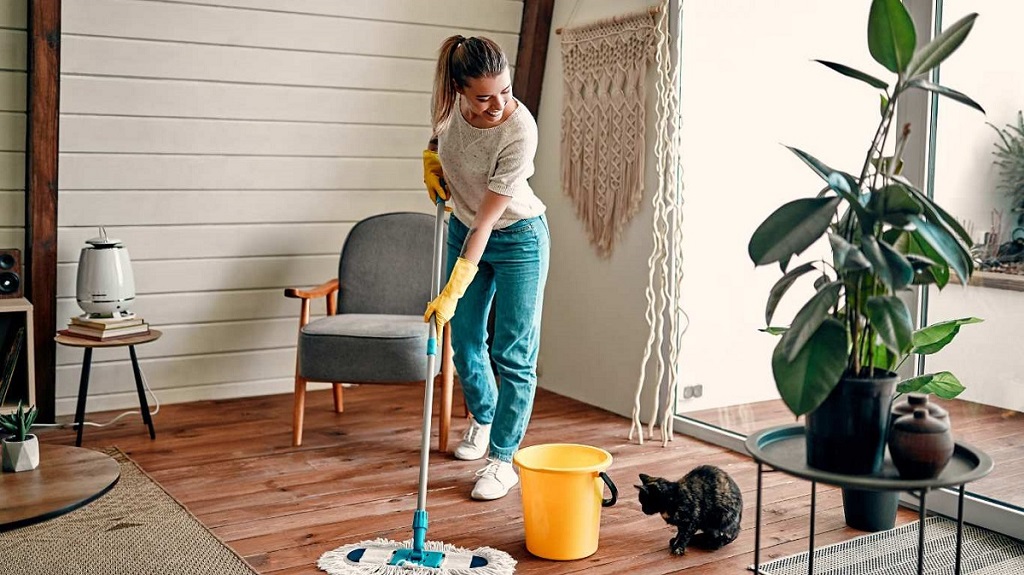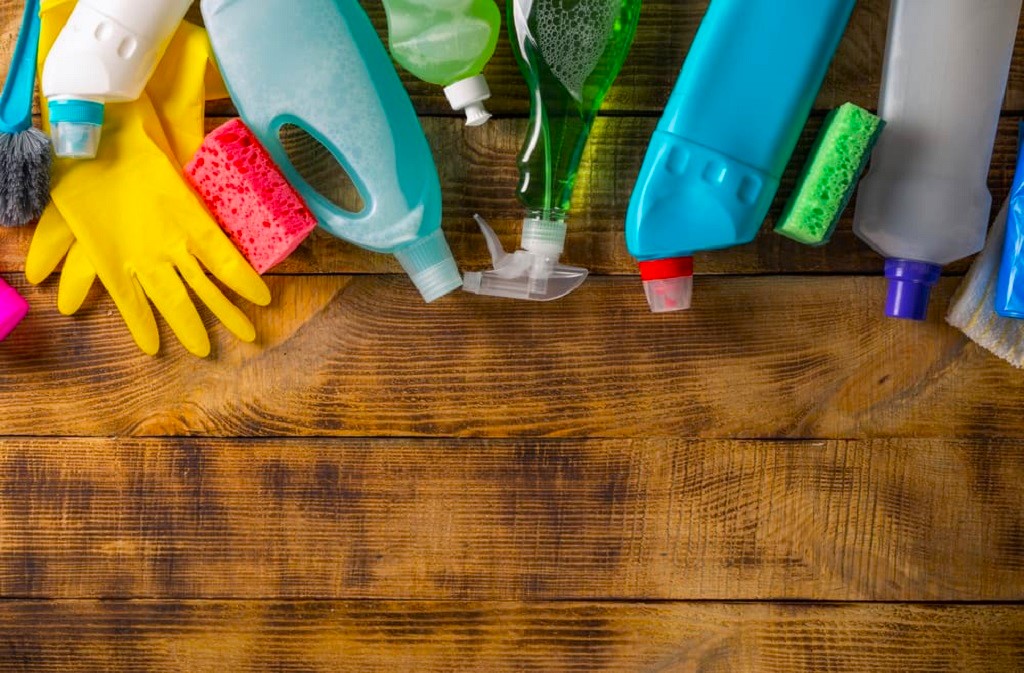A swimming pool can be a wonderful addition to any home, providing a refreshing escape during the hot summer. However, to ensure your pool water remains clean and inviting, it’s crucial to maintain your pool filter properly. In this article, we will guide you through how to clean pool filter effectively, ensuring your pool stays crystal clear and safe for swimming.
A clean pool filter is essential for water clarity and for preventing dirt, debris, and contaminants buildup. A clogged or dirty pool filter can hinder filtration, leading to cloudy water and potential health hazards. Regularly cleaning your pool filter ensures optimal performance and extends its lifespan.
Types of Pool Filters
There are three main types of pool filters commonly used in swimming pools: sand filters, cartridge filters, and diatomaceous earth (DE) filters. Each type has its own advantages and considerations. Here’s an overview of these pool filter types:
- Sand Filters: Sand filters are the most common and widely used type of pool filters. They contain a tank filled with fine sand or a specific grade of silica sand. The water passes through the sand bed, and the particles trap debris and impurities. Over time, as the filter becomes dirty, the water flow decreases, and the pressure increases. To clean the filter, a process known as backwashing is performed, where the water flow is reversed to flush out the trapped debris. Sand filters are relatively low maintenance and cost-effective but may not filter out extremely fine particles.
- Cartridge Filters: Cartridge filters use a replaceable cartridge element made of pleated fabric to filter out debris and impurities from the pool water. The cartridge consists of a large surface area that traps dirt and contaminants as the water passes through it. Cartridge filters offer excellent filtration, capturing particles as small as 10-15 microns. They require less frequent cleaning than sand filters and are easier to maintain. When the cartridge becomes dirty, it can be removed and cleaned with a hose or replaced with a new one.
- Diatomaceous Earth (DE) Filters: DE filters provide the highest level of filtration among the three types. These filters use a porous grid coated with diatomaceous earth, a fine powder made from fossilized remains of diatoms. DE acts as a filter media, trapping debris and impurities as the water passes through. DE filters can remove particles as small as 2-5 microns, producing exceptionally clear water. Periodically, the DE filter must be backwashed to remove accumulated debris, and fresh DE powder must be added. DE filters offer superior filtration but require more maintenance and can be more expensive than sand or cartridge filters.
Signs That Your Pool Filter Needs Cleaning
Knowing when to clean your pool filter is crucial. Some signs that indicate your pool filter requires cleaning include reduced water flow, increased pressure on the filter gauge, cloudy water, and debris in the pool. Here are some signs that indicate your pool filter may need cleaning:
- Decreased Water Flow: If you notice a significant decrease in water flow from your pool’s return jets, it could indicate that your filter is clogged and needs cleaning. A dirty filter restricts water flow and reduces circulation.
- Increased Pressure Gauge Reading: Most pool filters have a pressure gauge that indicates the pressure inside the filter tank. If you notice a consistently high-pressure reading, it suggests that the filter is dirty and requires cleaning. An elevated pressure reading results from the filter working harder to push water through the clogged media.
- Cloudy or Discolored Water: A dirty pool filter may struggle to remove impurities, leading to cloudy or discolored water effectively. If your pool water does not appear clear and vibrant despite regular maintenance, it could be a sign that the filter needs cleaning to improve its filtration efficiency.
- Longer Filtration Cycles: If your pool filter typically runs for a shorter duration but starts running for longer periods, it indicates that the filter is struggling to maintain clean water. A dirty filter requires more time to achieve the desired water clarity, resulting in extended filtration cycles.
- Build-up of Debris in the Filter: You can visually inspect the filter to check for accumulated debris. If you notice a substantial amount of dirt, leaves, or other debris on the filter media, it indicates that it needs cleaning to maintain proper functionality.
- Algae Growth: Algae growth in your pool can indicate inadequate filtration. A dirty filter may not effectively remove algae spores from the water, allowing them to multiply and form visible algae blooms. Cleaning the filter can help prevent further algae growth.
- Increased Chemical Usage: If you need to use more pool chemicals than usual to maintain water balance and clarity, it could be due to a dirty filter. A clogged filter hinders efficient chemical distribution, requiring higher chemical doses to compensate for poor filtration.
Steps to Clean a Pool Filter
Cleaning a pool filter involves several steps, regardless of the filter type. First, you need to turn off the pool pump and relieve the pressure in the system. Then, depending on your filter type, you can proceed with specific cleaning instructions.
Cleaning a Cartridge Filter
Cartridge filters are popular due to their easy maintenance. To clean a cartridge filter, remove the filter element, rinse it with a hose, and use a filter cleaner solution to remove any stubborn debris. Finally, reinstall the cartridge and restart the pool pump.
Cleaning a Sand Filter
Sand filters require backwashing to remove trapped debris. This involves reversing the water flow through the filter, flushing out the accumulated dirt and debris. After backwashing, a process known as “rinsing” should be performed to settle the sand bed before returning to normal filtration.
Cleaning a DE Filter
DE filters offer exceptional filtration capabilities but require periodic cleaning. To clean a DE filter, you must perform backwashing and then recharge the filter with fresh DE powder. This ensures efficient filtration and removes any impurities trapped in the filter grids.
Frequency of Cleaning Pool Filters
The frequency of pool filter cleaning depends on various factors, including pool usage, surrounding environment, and filter type. As a general guideline, it’s recommended to clean cartridge filters every two to four weeks. In contrast, sand and DE filters can go longer without cleaning, typically every six to eight weeks.
Tips for Effective Pool Filter Cleaning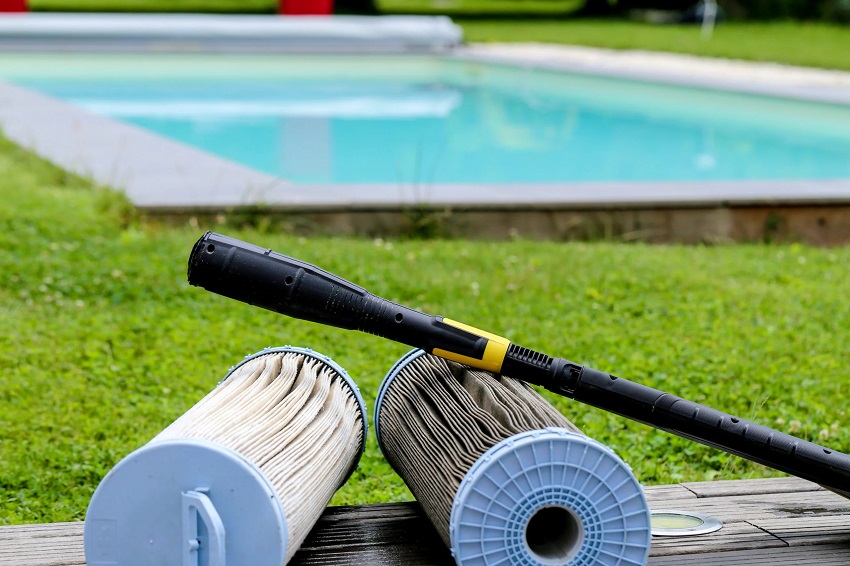
- Regularly inspect your pool filter to identify any signs of clogging or damage.
- Follow the manufacturer’s instructions and guidelines specific to your filter type.
- Keep a pool maintenance schedule to ensure timely filter cleaning and avoid neglecting this crucial task.
- Utilize filter cleaning solutions or chemicals recommended by the manufacturer.
- Rinse your filter elements thoroughly to remove any cleaning solution residue before reinstallation.
Common Mistakes to Avoid
When cleaning pool filters, it’s essential to avoid common mistakes that can negatively impact their performance:
- Neglecting regular filter cleaning and maintenance.
- Using excessive force when rinsing or cleaning filter elements may damage them.
- Failing to follow proper backwashing and recharging procedures for DE filters.
- Reinstalling a wet or damp cartridge can promote the growth of bacteria and mold.
- Need to reset the filter pressure gauge after cleaning.
Benefits of Regular Pool Filter Cleaning
Regularly cleaning your pool filter provides numerous benefits, including:
- Improved water clarity and aesthetics
- Enhanced filtration efficiency
- Extended lifespan of the pool filter
- Reduced risk of waterborne illnesses
- Cost savings by avoiding costly filter replacements
Troubleshooting Pool Filter Issues
Sometimes, despite proper cleaning and maintenance, pool filter issues may arise. Common issues include leaks, excessive pressure, or persistent cloudy water. In such cases, it’s recommended to consult a pool professional to promptly identify and resolve the problem.
Hiring Professional Pool Filter Cleaning Services
Hiring professional pool filter cleaning services is convenient if you prefer to leave pool filter cleaning to the experts or need assistance with complex filter maintenance tasks. These professionals have the expertise and tools to efficiently clean and service your pool filter, ensuring optimal performance.
Conclusion
Maintaining a clean pool filter is vital for enjoying a sparkling and inviting swimming pool. Following the outlined steps and tips for cleaning your pool filter, you can ensure crystal-clear water, improve filtration efficiency, and create a safe swimming environment for you and your loved ones. Regular maintenance and proper cleaning will keep your pool filter in excellent condition, providing years of enjoyment.

